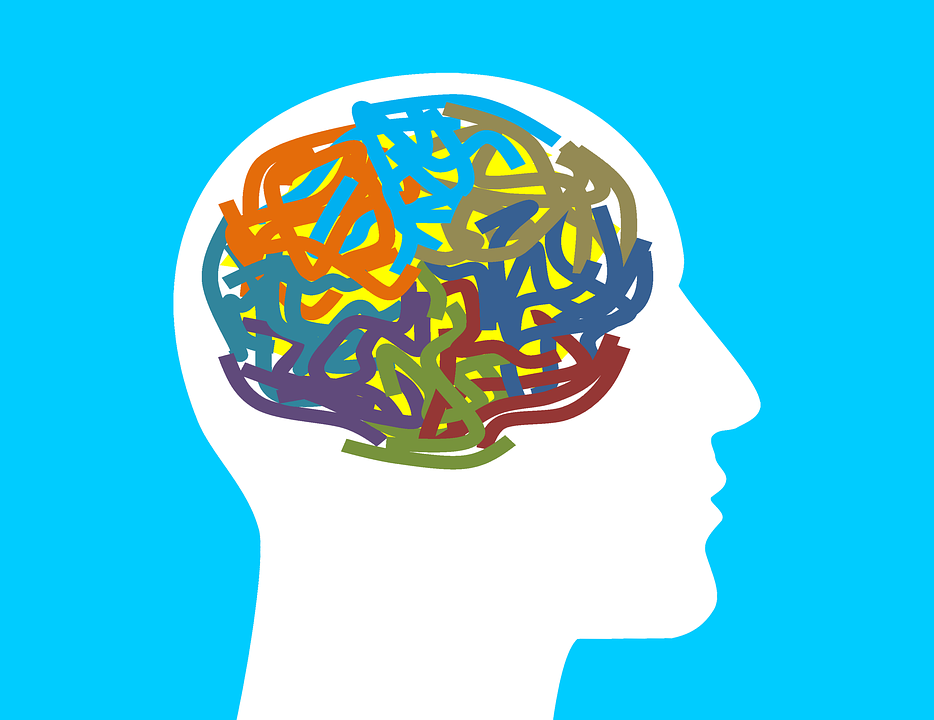Cognitive Behavioural Therapy: How It Transforms Thought Patterns
Wiki Article
Unlocking the Keys of Mental Health And Wellness: An Overview of Counseling and Therapy Options
Mental health is a complicated and critical aspect of overall well-being. Many counseling and therapy options exist to address different psychological challenges. Each strategy offers unique benefits and techniques customized to specific requirements. Comprehending these options is crucial for any individual looking for to enhance their mental wellness. Marriage Counselling. What variables should one consider when exploring these methods? The response may disclose a course to a much healthier emotionComprehending Mental Health and Its Value
Psychological health and wellness incorporates the emotional, psychological, and social well-being of people, significantly influencing how they assume, really feel, and act. Its value can not be overstated, as it affects every facet of life, including relationships, job performance, and total high quality of life. People with good psychological health and wellness tend to deal with tension better, preserve much healthier partnerships, and make educated choices. On the other hand, poor psychological health and wellness can result in psychological distress, impaired functioning, and various psychological disorders, which might need professional treatment. Comprehending psychological wellness is necessary for identifying the indicators of distress and the requirement for assistance. Awareness additionally advertises compassion and reduces stigma, motivating individuals to seek help when necessary. By prioritizing mental health, neighborhoods can promote settings that sustain emotional well-being, eventually bring about much healthier, more resistant individuals. This structure acts as a critical step toward effective psychological health and wellness therapy and treatment choices.
Types of Counseling Strategies
Counseling methods vary commonly, each customized to fulfill the one-of-a-kind requirements of people seeking assistance. Among one of the most usual types are cognitive-behavioral treatment (CBT), which concentrates on recognizing and altering unfavorable idea patterns, and person-centered therapy, which stresses compassion and acceptance. Psychodynamic treatment checks out unconscious processes and past experiences to understand existing habits, while solution-focused brief treatment intends to identify services as opposed to examine problems.Additionally, household treatment addresses relational dynamics and communication within family members, promoting much healthier interactions. Team counseling gives a common room for participants to share experiences and sustain each other. Other methods include existential therapy, which urges individuals to find definition and objective, and art or songs treatment, which uses imaginative expression as a restorative tool. Each approach supplies unique techniques and viewpoints, permitting clients to discover the most suitable technique for their individual growth and healing trips.Discovering Different Therapy Methods
In the domain of mental health and wellness therapy, various therapy methods provide distinct techniques to treatment. Cognitive Behavior Treatment stresses the link between ideas and actions, while Psychodynamic Therapy explores unconscious influences on emotional wellness. Additionally, Mindfulness-Based Strategies promote present-moment understanding as a way to improve emotional policy and general psychological wellness.Cognitive Behavior Modification
Cognitive Behavior Modification (CBT) stands apart as one of the most widely practiced and investigated techniques in psychological wellness treatment. This strategy concentrates on the affiliation in between sensations, habits, and thoughts, stressing that modifying negative idea patterns can bring about enhanced emotional health and behavior adjustments. CBT is structured, normally entailing a restricted variety of sessions, and aims to outfit people with functional abilities to handle their symptoms. It works for a range of problems, including anxiousness disorders, depression, and post-traumatic tension condition. By utilizing techniques such as cognitive restructuring and direct exposure treatment, CBT promotes strength and encourages clients to challenge challenges head-on, making it an important choice in the landscape of psychological health therapies.Psychodynamic Treatment Techniques
Psychodynamic treatment techniques provide a deep exploration of the subconscious mind and its impact on actions and emotional health. Rooted in Freudian theory, these methods highlight the importance of early youth experiences and subconscious disputes. Via methods such as cost-free association, desire analysis, and transfer, individuals obtain insight right into their feelings and thoughts, promoting self-awareness and understanding. This restorative modality encourages clients to discover quelched emotions and unsettled problems, which can be pivotal in dealing with existing mental challenges. By taking a look at the interplay in between present actions and previous experiences, psychodynamic therapy aims to advertise emotional healing and individual development. Eventually, it provides a framework for people to discover complicated inner characteristics that affect their mental health.
Mindfulness-Based Techniques
While typical treatments typically concentrate on past experiences, mindfulness-based strategies focus on present-moment understanding as a path to psychological health. These approaches, including mindfulness-based cognitive therapy (MBCT) and mindfulness-based stress reduction (MBSR), urge people to involve fully with their ideas and feelings without judgment. Professionals learn to observe their mindsets, promoting a greater understanding of emotional triggers and feedbacks. This method not only minimizes signs and symptoms of anxiety and depression yet likewise enhances general psychological strength. By incorporating mindfulness workouts, such as reflection and deep breathing, customers grow a feeling of peace and quality. Ultimately, mindfulness-based methods empower individuals to browse life's challenges with raised recognition and approval, advertising a healthier relationship with their thoughts and emotions.The Function of a Therapist or Therapist
A knowledgeable therapist or counselor plays an essential duty in supporting people via their mental health trips. They offer a secure, non-judgmental space where clients can reveal their sensations and thoughts freely. Mental Health Resources. By utilizing different restorative methods tailored per individual's requirements, specialists assist customers discover underlying concerns that may add to their psychological health and wellness challenges.Therapists provide guidance and tools to deal with stress, anxiousness, anxiety, and various other psychological difficulties. Their training furnishes them to identify patterns in behavior and assumed procedures, assisting in understandings that bring about individual growth. They likewise promote a solid therapeutic alliance, which is crucial for effective outcomes.Moreover, specialists continue to be fully commited to discretion and honest requirements, making certain a relying on environment. Inevitably, the function of a specialist or therapist is to encourage people, encouraging them to develop durability and healthier coping methods while guiding through life's complexitiesJust how to Pick the Right Therapy or Treatment Option
Picking the appropriate therapy or treatment alternative starts with examining individual demands. It is important to comprehend individual difficulties and objectives prior to discovering various therapy designs. This foundational action can significantly influence the performance of the chosen strategy.Analyze Your Needs

Just how can individuals successfully assess their mental health and wellness needs when evaluating counseling or therapy alternatives? Initially, they ought to mirror on their emotion and identify particular problems, such as partnership, anxiety, or clinical depression challenges. Journaling can be a valuable tool for tracking ideas and sensations with time. Furthermore, individuals may take advantage of seeking feedback from relied on friends or member of the family pertaining to perceived changes in actions or mood. It is additionally practical to examine personal goals for therapy, such as enhancing coping skills or gaining understanding into individual Mental Health Resources patterns. Looking into different counseling techniques and their viability for details requirements can help in making an informed option. Inevitably, self-awareness plays a pivotal role in picking the right path for psychological health assistance.
Explore Treatment Styles
While going across the varied landscape of therapy options, people ought to think about numerous designs of counseling to discover the finest fit for their special needs. Cognitive Behavior Therapy (CBT) concentrates on changing negative thought patterns, while Psychodynamic Therapy discovers previous experiences and unconscious procedures. Humanistic methods highlight personal growth and self-actualization, cultivating a helpful setting. In addition, mindfulness-based treatments cultivate present-moment recognition, assisting psychological regulation. For those seeking framework, Solution-Focused Short Treatment targets certain goals and remedies. Group treatment offers a common setting for common experiences and support. Inevitably, individuals should certainly review their preferences, comfort levels, and details challenges, guaranteeing they pick a therapeutic style that reverberates with their individual journey towards psychological wellness.Overcoming Barriers to Seeking Aid

The Advantages of Therapy and Treatment for Mental Wellness
Looking for aid for psychological health and wellness challenges can cause substantial renovations in overall well-being. Counseling and treatment give people with a risk-free area to explore their ideas and feelings, fostering self-awareness and individual growth. These expert services equip clients with coping techniques and problem-solving skills customized to their one-of-a-kind situations.Moreover, treatment can minimize signs and symptoms of anxiety, clinical depression, and other mental health conditions, enhancing emotional strength. Regular sessions advertise responsibility and urge people to set and attain individual goals. With numerous healing modalities, such as cognitive-behavioral treatment or mindfulness methods, customers discover to reframe negative ideas and create much healthier behaviors.Additionally, the healing relationship itself can be a source of support, helping to battle isolation and isolation. In general, participating in therapy and therapy is a positive step towards accomplishing mental wellness, enabling people to lead more satisfying lives.Often Asked Inquiries
How Much Time Does Therapy or Therapy Normally Last?
The duration of therapy or therapy varies considerably, commonly lasting from a few sessions to numerous months or years. Factors affecting this consist of the individual's details demands, the kind of therapy, and restorative objectives.What Should I Anticipate During My First Session?
Throughout the first session, people can anticipate an intro, conversation of problems, and the specialist's strategy. They might complete evaluations and develop objectives, fostering a risk-free setting for open communication and building relationship.
Exist Any Kind Of Risks Connected With Treatment?
Treatment can entail dangers, such as emotional discomfort, vulnerability, or challenging agonizing memories. While these obstacles may occur, they can additionally lead to individual development and healing, making the therapeutic process facility yet possibly fulfilling.How Can I Inform if My Therapist Is a Great Fit?
Establishing if a therapist is an excellent fit includes reviewing convenience, communication design, and healing strategy. Positive relationship and progress in the direction of objectives are indications of an appropriate suit, necessary for reliable mental health support.Will My Insurance Policy Cover Therapy or Treatment Sessions?
Establishing insurance policy protection for therapy or therapy sessions usually calls for getting in touch with the insurance policy provider directly. Plans vary considerably, so individuals should confirm advantages, co-pays, and any type of essential pre-approvals before going after treatment solutions. Amongst the most usual types are cognitive-behavioral therapy (CBT), which focuses on determining and transforming unfavorable thought patterns, and person-centered treatment, which highlights empathy and acceptance. Psychodynamic treatment discovers past experiences and unconscious procedures to recognize current behavior, while solution-focused quick therapy intends to determine solutions rather than examine problems.Additionally, family therapy addresses relational characteristics and interaction within households, fostering healthier interactions. Various other approaches include existential treatment, which motivates people to locate significance and purpose, and art or music treatment, which utilizes innovative expression as a therapeutic tool. Cognitive Behavioral Therapy stresses the link between actions and ideas, while Psychodynamic Treatment explores subconscious impacts on emotional health. Cognitive Behavioral Treatment (CBT) concentrates on altering unfavorable idea patterns, while Psychodynamic Treatment checks out previous experiences and unconscious procedures.Report this wiki page